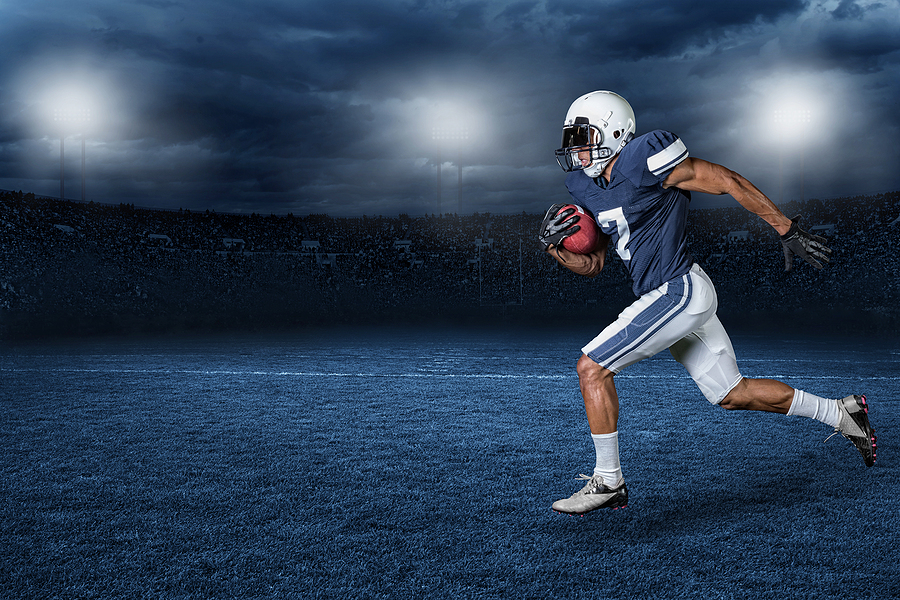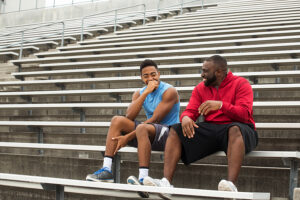From Athlete to Sports Psychologist: How Former Competitors Can Build a Career in Performance Psychology

The Athlete’s Edge in Sports Psychology
Former athletes possess a unique advantage when entering the field of sports psychology. Having personally experienced the mental challenges of competition—performance anxiety, recovery from injury, team dynamics, and career transitions—provides insights that cannot be gained through textbooks alone. This lived experience, when combined with proper academic training, creates sports psychology professionals who speak the language of athletes and understand their world from the inside out.
For athletes considering their post-competition careers, sports psychology offers an opportunity to remain connected to the sporting world while helping others overcome the same mental hurdles they once faced. However, the path from athlete to sports psychologist requires careful planning, academic commitment, and professional development beyond athletic accomplishments.
This guide outlines the educational requirements, certification pathways, and strategic steps former athletes can take to successfully transition into the growing field of sports psychology.
Learn more about how to become a sports psychologist.
Educational Pathways: Building Academic Credentials
Undergraduate Foundation
The journey typically begins with a bachelor’s degree in one of these fields:
- Sports Psychology: The obvious choice, a Bachelor’s in Sports Psychology primes students on the intersection of sports and psychological concepts
- Psychology: Provides fundamental understanding of human behavior and mental processes
- Kinesiology/Exercise Science: Offers insight into the physical aspects of performance
- Sport Science: Combines elements of both psychology and physical performance
For former athletes who already hold undergraduate degrees in unrelated fields, post-baccalaureate coursework in psychology may be necessary before advancing to graduate studies.
Graduate Education Requirements
A master’s degree is the minimum requirement for most sports psychology positions, with doctoral degrees necessary for certain roles:
Master’s Level Options:
- MA/MS in Sport Psychology: The Master’s in Sports Psychology is focused specifically on psychological aspects of athletic performance
- MA/MS in Counseling Psychology with sports emphasis: Combines general counseling skills with sport applications
- MA in Kinesiology with sport psychology concentration: Integrates physical and mental aspects of performance
Doctoral Pathways:
- PhD in Sport Psychology: Research-focused and ideal for academic and research careers, the PhD in Sports Psychology is a popular choice.
- PsyD with Sport Psychology emphasis: Practice-oriented, focused on clinical applications
- PhD in Counseling Psychology with sport specialization: Combines clinical mental health training with sport applications
Example Graduate Program Timeline:
- Master’s degree: 2-3 years
- Doctoral programs: 4-6 years beyond bachelor’s degree
- Supervised practice/internship: 1,500-2,000 hours (varies by credential)
Specialized Certifications
Beyond degree programs, specialized certifications enhance credibility:
- Certified Mental Performance Consultant (CMPC) through the Association for Applied Sport Psychology: Requires graduate degree, coursework in specific knowledge areas, and supervised practice
- Certified Sport Psychology Consultant (CSPC) through various international organizations: Requirements vary by country
- Licensed Psychologist with sport specialization: Requires doctoral degree, internship, and passing licensure exams
See our Sports Psychology Licensing & Certification Guide for more information.
Leveraging Athletic Experience in Your Education
Former athletes can maximize their background during education by:
- Selecting research topics that align with personal athletic experiences
- Pursuing practicum experiences with teams or in sports they understand deeply
- Developing specialized knowledge in areas where they faced challenges as athletes (injury recovery, performance anxiety, etc.)
- Building academic understanding of psychological principles they experienced firsthand
Transitioning Career Paths for Different Athletic Backgrounds
Collegiate Athletes
Former collegiate athletes often follow these paths:
- Complete undergraduate studies in psychology or related field
- Pursue graduate education while working as graduate assistants with athletic departments
- Leverage college connections for internship opportunities
Professional Athletes
Professional athletes transitioning to sports psychology may:
- Complete education during off-seasons or after retirement
- Use name recognition and networks to build client base
- Develop specialized expertise working with elite competitors
Olympic/International Athletes
International competitors often:
- Focus on performance psychology for high-stakes competitions
- Specialize in working with national teams or Olympic training centers
- Bring valuable cross-cultural perspectives to the field
Blending Athletic Identity with Professional Development
Networking Strategies
Former athletes can leverage their existing connections by:
- Maintaining relationships with coaches, teammates, and athletic administrators
- Joining professional organizations like the Association for Applied Sport Psychology
- Attending conferences where both sports and psychology professionals gather
- Creating content that bridges athletic experience with psychological principles
Practical Experience Building
Gaining supervised practice hours in relevant settings:
- Athletic departments at colleges and universities
- Professional sports team organizations
- Olympic training facilities
- Youth sports development programs
- Sports medicine and rehabilitation centers
The Dual-Perspective Advantage
Former athletes-turned-psychologists offer unique value through:
Credibility with Athletes
- Authentically understand competitive mindsets
- Speak the language of sport
- Navigate team cultures effectively
- Recognize subtle performance issues
Enhanced Counseling Effectiveness
- Identify with career transition challenges
- Understand identity issues tied to athletic performance
- Recognize unique stressors in specific sports
- Apply psychological principles in sport-specific contexts
Career Opportunities for Former Athletes in Sports Psychology
Traditional Roles
- Team Sports Psychologist: Work with professional or collegiate teams
- Individual Consultant: Private practice working with athletes
- Academic: Teaching and researching sports psychology
- Clinical Sports Psychologist: Addressing both performance and clinical issues
Emerging Fields
- Esports Psychology: Mental performance in competitive gaming
- Corporate Performance: Applying sports psychology principles in business
- Youth Development: Mental skills training in developmental programs
- Athletic Transition Specialist: Helping athletes navigate career changes
Practical Steps to Begin Your Transition Today
- Assess your current educational background and identify gaps requiring additional coursework
- Research graduate programs with strong sports psychology components
- Connect with former athletes who have successfully made the transition
- Gain volunteer experience in sports psychology settings while completing education
- Develop a specialization that aligns with your specific athletic background
- Create content demonstrating your unique perspective as an athlete-psychologist
- Build a professional online presence highlighting both athletic and academic credentials
A Meaningful Career Extension
The transition from athlete to sports psychologist represents more than a career change—it’s an extension of your athletic journey in a form that benefits others. By combining lived experience with academic training, former athletes bring authenticity and insight to sports psychology practice that enriches the field.
While the educational requirements are substantial, the opportunity to transform personal athletic challenges into professional expertise makes sports psychology an especially rewarding path for those looking to remain connected to the world of sports while developing a sustainable, impactful career.
For athletes accustomed to dedication and performance excellence, the discipline required to complete advanced education is a natural extension of the mindset that made them successful competitors—making them uniquely positioned to excel in this growing field.


- From Athlete to Sports Psychologist: How Former Competitors Can Build a Career in Performance Psychology - April 2, 2025
- How to Land an Internship in Sports Psychology - February 26, 2025
- Leveraging Your Mental Health Background for a Career in Sports Psychology - October 3, 2024

